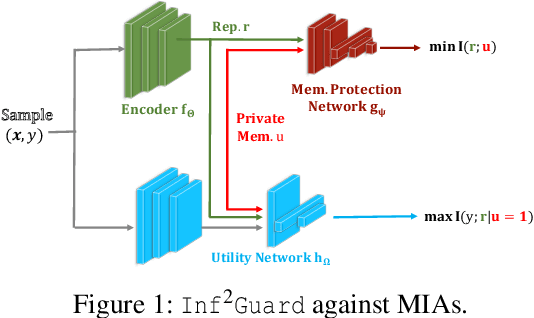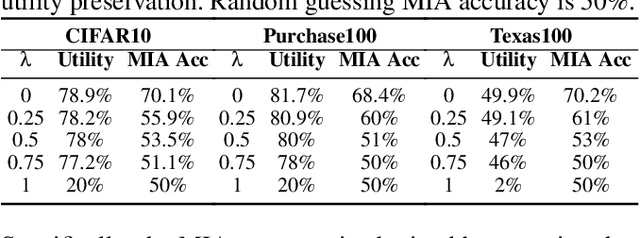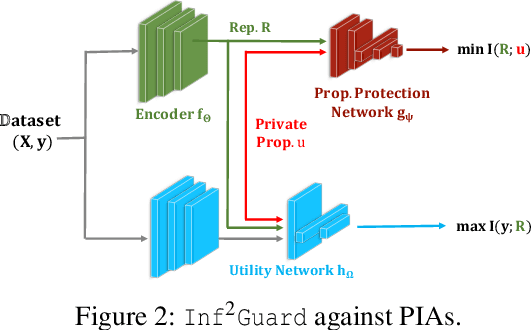Inf2Guard: An Information-Theoretic Framework for Learning Privacy-Preserving Representations against Inference Attacks
Paper and Code
Mar 04, 2024



Machine learning (ML) is vulnerable to inference (e.g., membership inference, property inference, and data reconstruction) attacks that aim to infer the private information of training data or dataset. Existing defenses are only designed for one specific type of attack and sacrifice significant utility or are soon broken by adaptive attacks. We address these limitations by proposing an information-theoretic defense framework, called Inf2Guard, against the three major types of inference attacks. Our framework, inspired by the success of representation learning, posits that learning shared representations not only saves time/costs but also benefits numerous downstream tasks. Generally, Inf2Guard involves two mutual information objectives, for privacy protection and utility preservation, respectively. Inf2Guard exhibits many merits: it facilitates the design of customized objectives against the specific inference attack; it provides a general defense framework which can treat certain existing defenses as special cases; and importantly, it aids in deriving theoretical results, e.g., inherent utility-privacy tradeoff and guaranteed privacy leakage. Extensive evaluations validate the effectiveness of Inf2Guard for learning privacy-preserving representations against inference attacks and demonstrate the superiority over the baselines.
 Add to Chrome
Add to Chrome Add to Firefox
Add to Firefox Add to Edge
Add to Edge